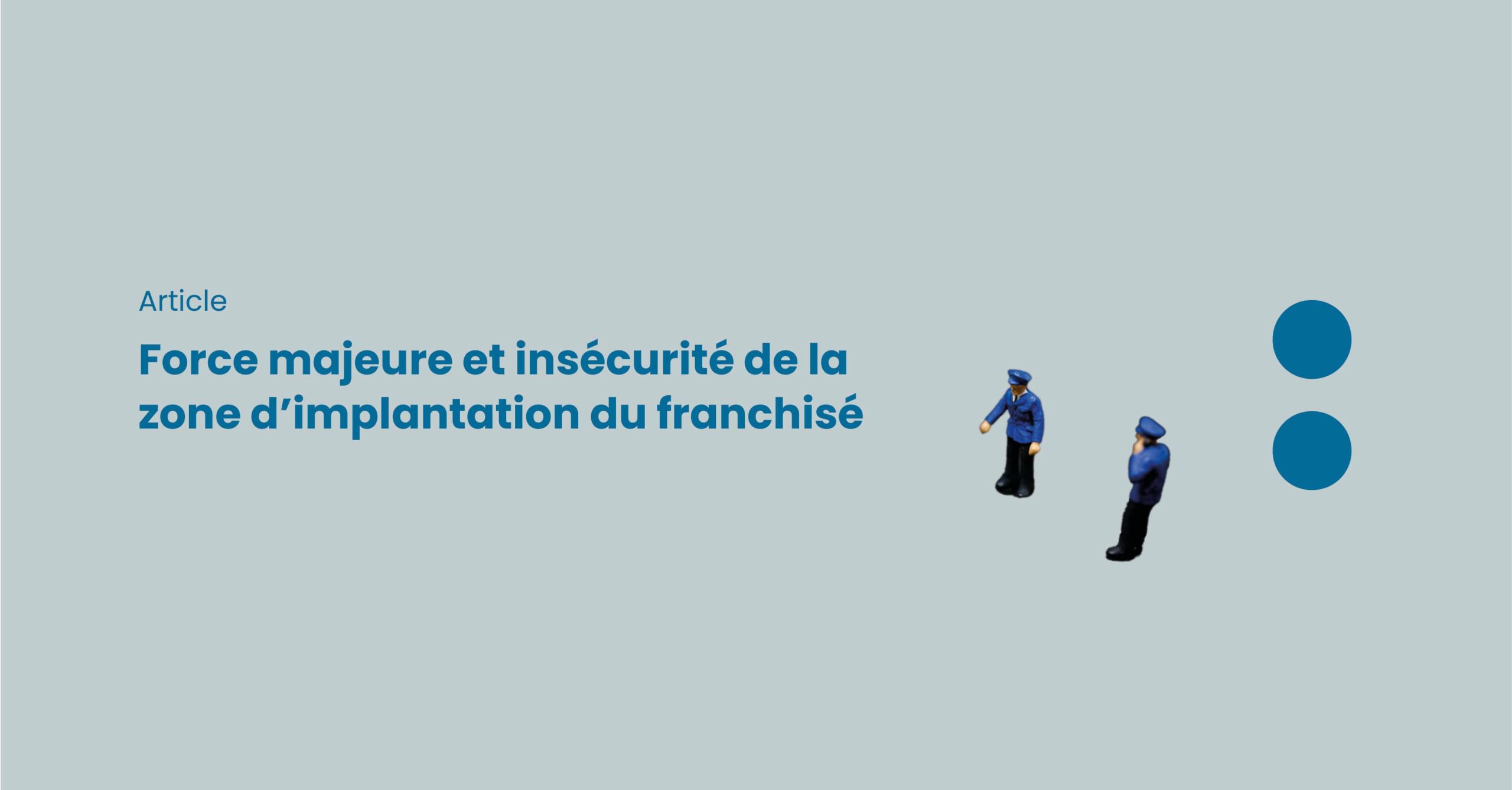
The known insecurity of the area of implantation does not constitute an unforeseeable or inevitable circumstance.
In a judgment of October 26, 2021, the Montpellier Court of Appeal sheds light on the circumstances allowing – or not – a franchisee to terminate the franchise contract on the basis of a case of force majeure.
In this case, two months after his initial contract had been renewed for a period of 7 years, a franchisee had unilaterally terminated, without respecting the contractual notice, the contract binding him to his franchisor.
Invoking the numerous thefts of which he had been the victim, as well as a continual fall in turnover, the franchisee had put an end to the operation of the point of sale considering that these circumstances constituted a case of force majeure making it impossible to serene operation of the point of sale.
Sentenced at first instance for wrongful termination of the contract, the franchisee had appealed the decision of the Commercial Court of Perpignan, recalling having filed a complaint six times for thefts perpetrated in his store, insecurity which constituted a case of force majeure as well as than a "foreign cause" which would have released him from the obligation to respect the contractual notice.
The franchisor was also accused of disinterest and a lack of assistance with regard to the franchisee, the brand having, according to the franchisee, "refused any adaptation of the concept to its particular situation" (like the possibility of offering payment facilities to its customers.)
However, this argument was not accepted by the Montpellier Court of Appeal, which dismissed all of the franchisee's claims.
According to the judges, “the operating context of the store, admittedly difficult”, did not characterize a case of force majeure” because in 2012, when the contract was renewed, it was “neither unpredictable nor impossible to avoid”.
The magistrates noted in particular that the franchisee, who had chosen this place to establish himself, had remained there despite the numerous press articles published since 2009 and even after the area was classified as a priority security zone in 2013, then in a priority district in 2015.”
Considering, moreover, that the franchisee did not provide proof of the franchisor's lack of interest and of the violation by the latter of its obligation of permanent assistance, the Court of Appeal upheld the decision of first instance by ordering the franchisee to pay more €10,000 in royalties, and a termination indemnity in compensation for the damage suffered by the franchisor corresponding to 12 months of royalties, in accordance with the stipulations of the franchise contract.

Laurence Kouassi
author
lawyer
Repetition of old-age benefits obtained by fraud
Court of Cassation, Plenary Assembly, May 17...
Biennial prescription: the Court of Cassation finally sets limits in favor of insurers
The obligation to inform insurers about the causes of interruption of the two-year prescription does not require mentioning the entire article 2243 of the Civil Code according to which the interruption does not take place when the claimant give up, leave...
Interview with Romain Picard, young partner of the firm Arst Avocats specialized in Corporate / M&A
Today we welcome Romain Picard, a young partner from Arst Avocats, who tells us about the reasons that led him to join the firm and talks to us about the projects that drive him with regard to the development of the practice of Corporate / M&A in this office...
Repetition of old-age benefits obtained by fraud
Court of Cassation, Plenary Assembly, May 17...
Biennial prescription: the Court of Cassation finally sets limits in favor of insurers
The obligation to inform insurers about the causes of interruption of the two-year prescription does not require mentioning the entire article 2243 of the Civil Code according to which the interruption does not take place when the claimant give up, leave...
Interview with Romain Picard, young partner of the firm Arst Avocats specialized in Corporate / M&A
Today we welcome Romain Picard, a young partner from Arst Avocats, who tells us about the reasons that led him to join the firm and talks to us about the projects that drive him with regard to the development of the practice of Corporate / M&A in this office...